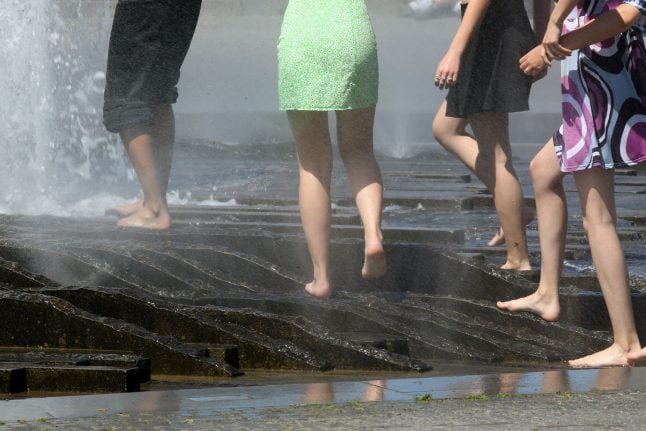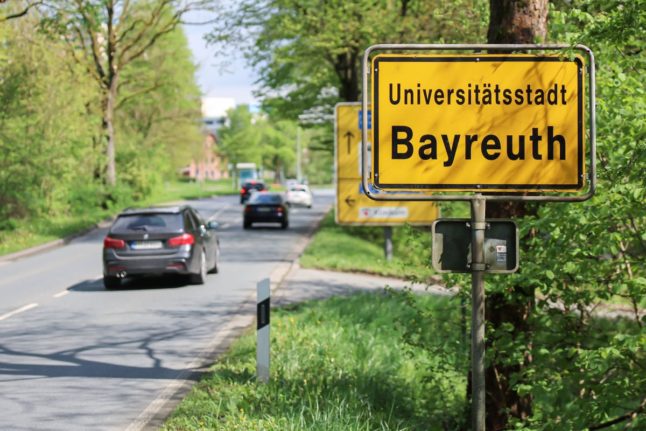The Bundestag passed a law early on Friday that means taking illicit photographs of someone under a person's clothes, such as under their skirt or of their neckline, will become illegal in Germany.
If anyone is caught doing this they can be hit with a fine or a prison sentence of up to two years. It is expected that the law will come into force this autumn.
“To photograph under a woman's skirt or her cleavage area is a shameless violation of her privacy,” said Federal Justice Minister Christine Lambrecht of the centre-left Social Democrats (SPD).
Lambrecht, who pushed through the new law, said this behaviour is unacceptable.
The new legislation will also criminalise photographing victims of accidents or pictures that “display a dead person in a grossly offensive way,” said Lambrecht.
READ ALSO: Germany approves bill to ban upskirting
'Important step'
The change in law has been fuelled by campaigners Ida Marie Sassenberg and Hanna Seidel from the southern German city of Ludwigsburg who launched an online petition last year to ban upskiriting in Germany. It has gathered more than 109,000 signatures.
Seidel welcomed the new law. “It is a great symbol of justice, politics and society,” the 29-year-old said. “Its symbolic value should not be underestimated.”
Following the petition, the states of Baden-Württemberg, Bavaria, North Rhine-Westphalia and Saarland took up the issue and started legislative initiatives in the Bundesrat.
Seidel said that the federal law does not completely solve the problem. “A lot still needs to happen in society. But it's a right and very important step,” she said.
Nils Pickert from the feminist organisation Pinkstinks said that upskirting often takes place in large crowds, such as on buses and trains, at festivals or in clubs and bars.
“There are people who put cameras in public toilets to film women,” Pickert said. The photos are often for personal use, but can be shared with friends or on the Internet.
Pickert said this kind of sexualised violence “must be taken seriously as an issue and this must be reflected in the punishment”.
Tightening criminal law
Johannes Fechner, the SPD's legal policy spokesman in the Bundestag, said victims of these attacks often do not realise they have been photographed.
Up until now upskirting has only been punished in Germany as an administrative offence with small fines, which has not deterred offenders. “Therefore we are closing an important gap in punishing here, and tightening the criminal law at this point,” said Fechner.
Jan-Marco Luczak, legal policy spokesman for the centre-right CDU/CSU parliamentary group, said secret photography is unfortunately becoming more widespread as everyone carries phones with cameras. “As legislators, we are taking decisive action against it,” he said.
The assaults are humiliating and hurtful to victims and often have far-reaching psychological consequences, Luczak added.
The act of upskirting is criminalised already in some countries across the world, including Scotland, India, New Zealand and Finland. It also became a criminal offence in England and Wales in 2019 after a campaign.
As well as the law on taking illicit photographs, the Bundestag also passed a ban on tobacco advertising as well as a voucher scheme for package holidaymakers.
If a trip cannot be taken due to coronavirus, tour operators will in future be able to offer their customers vouchers. Customers can opt for a refund of the money paid, or for the voucher.



 Please whitelist us to continue reading.
Please whitelist us to continue reading.
Member comments